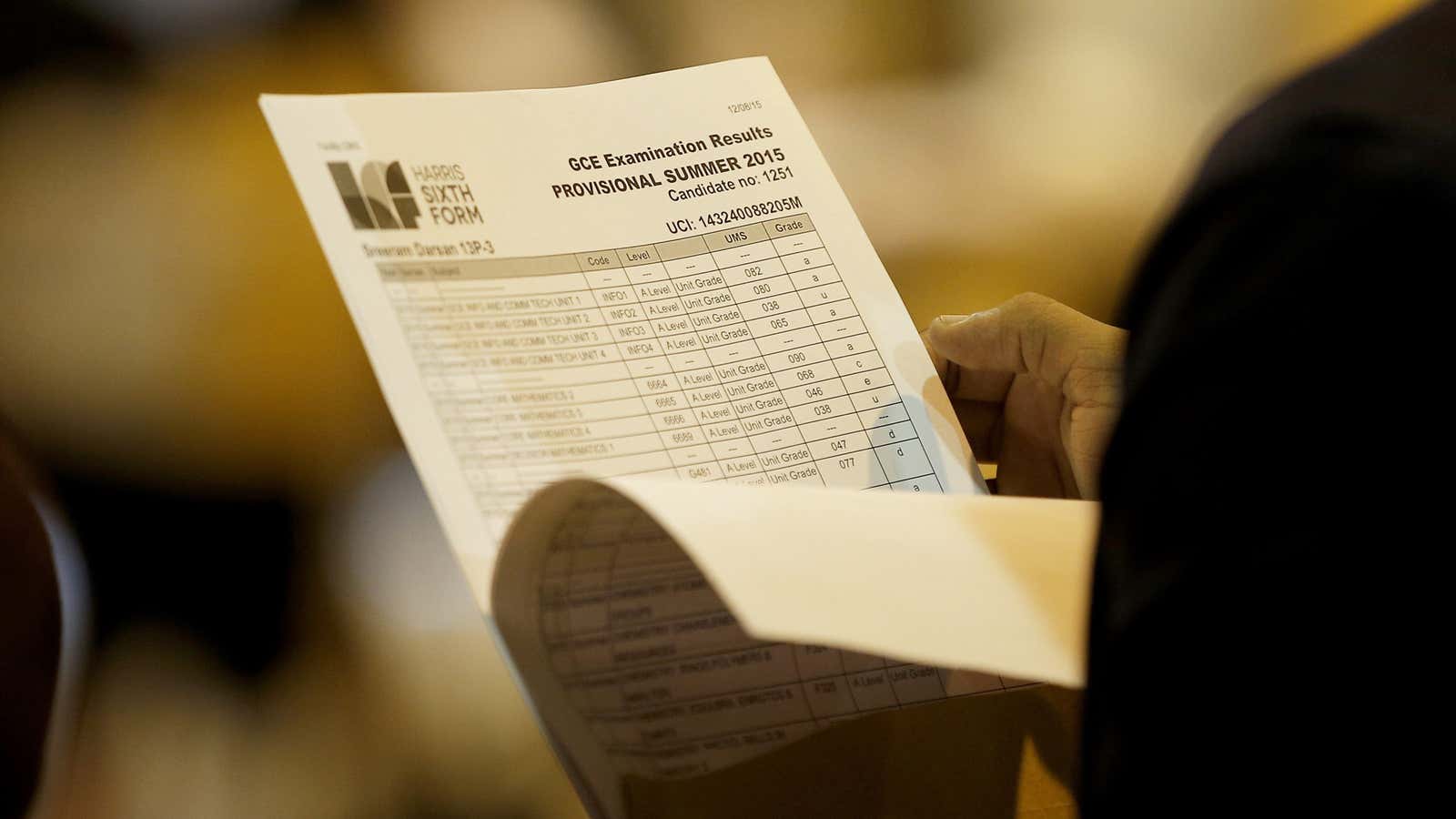If you’re a morning person who also happens to have test anxiety, you might find comfort in new research that suggests that taking tests earlier in the day actually leads to higher scores.
The research (pdf) comes from the Danish National Centre for Social Research. Economist Hans Henrik Sievertsen and his team of researchers did a deep dive into the performance of Danish schoolchildren on exams, examining 2 million test scores from students ages 8 to 15. They found that the earlier the test-taking began, the better the students did—in fact, for every hour after 8am that the students waited to start their tests, their scores fell as much as if they’d missed 10 days of class.
Students appear to be at their most alert when the school day starts, and may experience cognitive fatigue as the day wears on, impacting their ability to perform well on tests, the authors write in their study.
There does seem to be one way around the disadvantage of starting a test later in the day: taking a short break beforehand. Students who took a 20- or 30-minute break before a test scored as well as if they’d started two hours earlier, according to Sievertsen’s results.
Research has shown that the sleep patterns of students and the time they start class might impact their performance at school. One study carried out at an English high school found that students’ test scores shot up, their health improved and they were nicer to teachers when they started classes at 10am for two years. This led the study’s author, high school headteacher Dr. Paul Kelley, to hypothesize that adolescents could benefit from later wake-up times than adults.
Sievertsen notes that his team’s findings should not be seen as evidence that the school day should start earlier for children and adolescents. Rather, educators should account for cognitive fatigue when considering how long the school day should be, and how many breaks the students receive.
Understanding what happens during breaks when the pupils seem to be recharging is crucial to understanding how chronic fatigue impacts students differently, Sievertsen told the New Scientist. “Is it because they have something to eat, or fresh air?” Sievertsen said. “If we know that, we can maybe speculate why some children are more affected.”
